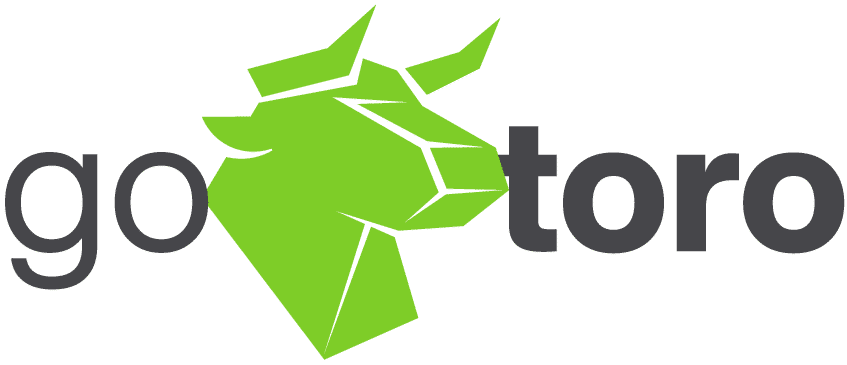How to Find the Right Job Recruiter in Today’s Market
Finding the right job recruiter can be a game-changer for candidates navigating the competitive job market. Recruiters act as connectors between job seekers and employers, helping individuals find positions that align with their career goals. However, with so many recruiters available, identifying the one best suited to your needs can feel overwhelming. That’s why knowing how to find a job recruiter that fits your industry and goals is crucial for long-term career success.
Many job seekers struggle to understand the different types of recruiters, their specialties, and how to evaluate their effectiveness. This guide will walk you through the process of finding the right recruiter by exploring key factors such as their role, communication skills, industry expertise, and more. By the end of this article, you’ll have a solid understanding of how to find a job recruiter that can support your professional journey.
Understanding the Role of a Job Recruiter

To start the process of finding the right job recruiter, it’s essential to understand what job recruiters do and how they fit into the hiring process. Job recruiters serve as intermediaries between employers and candidates, working to fill open positions by sourcing and screening potential hires. They streamline the job search for candidates by providing access to roles that may not always be publicly advertised.
There are two main types of recruiters: internal recruiters and external recruiters. Internal recruiters work directly for a specific company, focusing solely on filling positions within that organization. On the other hand, external recruiters—sometimes called staffing agency recruiters—work independently or for agencies, helping candidates find jobs across a variety of companies and industries.
Knowing whether you need an internal or external recruiter can significantly impact your job search success. Internal recruiters are best for candidates targeting specific companies, while external recruiters can provide a broader range of opportunities in different fields. Ultimately, how to find the right job recruiter depends on your career goals and the type of job market you’re looking to enter.
Knowing Your Career Goals Before Finding a Job Recruiter
Before starting your search on how to find a job recruiter, it’s essential to have a clear understanding of your career goals. Defining what you want in terms of industry, job role, location, and work-life balance is critical to ensuring you find a recruiter who can align with your professional aspirations. A recruiter can only be effective if they understand your goals and can match them with relevant job opportunities.
Start by asking yourself the following:
- What industries are you most interested in?
- What job roles fit your skill set and experience?
- Do you have location preferences or are you open to remote work?
- What type of work-life balance do you need for long-term satisfaction?
Knowing these details will not only help you communicate better with a recruiter but also allow you to assess if they have the right expertise to guide you. For instance, if your career goals are focused on technology, you’ll want to make sure the recruiter has experience placing candidates in that field. Ultimately, finding the right job recruiter depends on how well their specialties align with your career path.
Specialized vs. Generalist Recruiters: Finding the Best Fit for Your Job Search
When learning how to find a job recruiter, one key decision is whether to work with a specialized or generalist recruiter. Both types have their benefits, but the right choice depends on your specific career goals.
Specialized Recruiters:
These recruiters focus on specific industries, such as tech, healthcare, or finance. They have in-depth knowledge of the field and strong networks within that industry. If you’re targeting a niche job market or have specialized skills, a recruiter who knows your industry inside and out can be highly beneficial. For example, a tech recruiter will understand the exact qualifications employers are looking for and can help you fine-tune your resume for those roles.
Generalist Recruiters:
Generalist recruiters work across various industries and sectors. They may not have the deep industry knowledge of specialized recruiters, but they can provide more diverse opportunities. If you’re flexible and open to different industries, working with a generalist recruiter can expose you to a wider range of job openings.
When considering how to find the right job recruiter, think about whether your career would benefit more from industry-specific expertise or broader job market exposure.
Researching Recruiter Reputation and Expertise
Once you know your career goals and the type of recruiter you’re looking for, the next step is researching their reputation and expertise. Learning how to find a job recruiter involves more than just picking someone at random—you’ll need to evaluate their success and trustworthiness.
Here are some tips to guide your research:
- Sites like Google Reviews and Glassdoor can provide insights into how well the recruiter works with job seekers.
- Personal referrals are often the best way to find trustworthy recruiters. Ask colleagues, friends, or industry peers if they have worked with recruiters they would recommend.
- A good recruiter will have a strong history of placing candidates in roles similar to the one you’re seeking. You can ask them for examples of recent placements or check their website for testimonials.
- LinkedIn is an invaluable tool when researching recruiters. Review their connections, endorsements, and past success stories. A recruiter with a robust network in your target industry can often connect you to hidden job opportunities.
By conducting thorough research, you can ensure that the recruiter you choose has the right reputation and expertise to help you succeed in your job search. Finding the right job recruiter is about building trust and making sure they have the experience to guide you effectively.
Finding Recruiters with Strong Industry Networks

When exploring how to find a job recruiter, one of the most critical factors is their industry network. Recruiters with deep industry connections often have access to job opportunities that aren’t publicly advertised, known as “hidden jobs.” These recruiters can tap into a broader range of positions because they have established relationships with top employers in the field, giving their candidates an edge in the hiring process.
To ensure you’re working with a recruiter who can offer this advantage, ask them about their network. Specifically, inquire about:
- The companies they regularly work with.
- How often they place candidates in your target industry.
- Whether they have access to exclusive roles or hidden opportunities.
Choosing a recruiter with a robust network can make a huge difference in your job search, helping you get in front of employers you may not find on your own.
Evaluating Communication and Responsiveness When Finding a Job Recruiter
In your search for how to find a job recruiter, communication should be a top priority. A successful recruiter-candidate relationship hinges on clear, timely, and professional communication. A good recruiter should keep you updated throughout the hiring process, providing feedback after interviews and sharing new opportunities as they arise.
Here are some key aspects to consider when evaluating a recruiter’s communication:
- How quickly do they respond to your inquiries? Slow response times may indicate a lack of dedication or professionalism.
- Are they clear in their messaging, explaining next steps and expectations? Clear communication ensures there are no misunderstandings during your job search.
- Observe how they interact with you in emails, phone calls, or meetings. Are they courteous and respectful? Do they follow up as promised?
Good communication can make the job search less stressful and more productive, helping you feel confident that your recruiter is actively advocating on your behalf.
Assessing the Recruiter’s Knowledge of the Job Market
One of the key components in how to find a job recruiter is ensuring they have a deep understanding of the current job market. A knowledgeable recruiter will be aware of market trends, salary expectations, and the skills that are in high demand. This expertise can be critical when negotiating offers or targeting specific roles.
When speaking with a potential recruiter, ask them:
- About the current trends in your industry.
- What salary ranges you can expect based on your experience and role.
- What specific skills employers are seeking in candidates like you.
A recruiter who stays updated on market conditions is better equipped to guide you toward opportunities that align with your career goals. Their insights can also help you position yourself as a competitive candidate in a crowded job market.
Choosing Between Retained and Contingency Recruiters: How to Find the Right Job Recruiter for Your Needs
When figuring out how to find a job recruiter that best fits your needs, it’s essential to understand the difference between retained and contingency recruiters. Each type operates under a different payment structure and focuses on different job market segments.
- These recruiters are paid upfront by employers to fill a specific role. They are usually hired for high-level or executive positions and work closely with companies to ensure the best possible match. Since they have a vested interest in filling the role, retained recruiters often dedicate more time and resources to finding the right candidate.
- These recruiters are paid only when a candidate they submit is hired. They typically work with multiple clients and fill a broader range of positions, making them ideal for candidates looking for roles in various industries or at different career levels. Because contingency recruiters are only compensated upon success, they tend to move quickly and present candidates to several employers.
When deciding between the two, consider your career stage and job search needs. If you’re looking for an executive-level position, a retained recruiter might be a better fit due to their dedicated approach. For more general or mid-level roles, a contingency recruiter can offer a wider range of opportunities.
Trust and Transparency: How to Find a Job Recruiter Who Will Build a Strong Relationship
When learning how to find a job recruiter, trust and transparency should be your top priorities. A good recruiter will be upfront about job opportunities, the hiring process, and any challenges in your application profile. Transparency is crucial to setting clear expectations and ensuring both parties are on the same page throughout the hiring process.
Here are key qualities to look for in a transparent recruiter:
- A recruiter who clearly communicates job details, timelines, and hiring expectations builds trust. They should be honest about your qualifications, giving constructive feedback on how to improve your chances.
- Beware of recruiters who spring last-minute changes or unexpected requirements on you. A transparent recruiter will keep you informed at every step, so there are no surprises when it comes time for interviews or negotiations.
Building trust with your recruiter can lead to a long-term partnership, where they continue to assist you in your career even after you’ve landed a job. A recruiter you trust can provide valuable advice and access to future opportunities.
Avoiding Red Flags When Finding a Job Recruiter
As you navigate how to find a job recruiter, it’s essential to watch for red flags that may signal a recruiter is not acting in your best interest. Some recruiters may use tactics that prioritize their commission over your long-term career success, which can lead to a frustrating or even harmful job search experience.
Here are some red flags in a job recruiter to avoid:
- Recruitment should always be free for candidates. If a recruiter asks for any kind of payment, it’s a sign they are not legitimate.
- Be cautious of recruiters who make grand promises without providing specific details. A professional recruiter will have concrete information about the roles they’re presenting to you.
- A recruiter who pressures you into accepting a position that doesn’t align with your goals or expertise is a major red flag. A good recruiter will take the time to find roles that are a good fit, rather than pushing you into a job just to make a quick placement.
By recognizing these red flags, you can avoid unprofessional recruiters and focus on finding a trustworthy partner who will support your job search with integrity.
Taking the Initiative: How to Find a Job Recruiter Without Relying Solely on Them
When learning how to find a job recruiter, it’s important to remember that recruiters should be just one part of your broader job search strategy. While recruiters can connect you to valuable opportunities, they shouldn’t be your only resource. A proactive job search is key to finding the right position, and that involves using multiple avenues beyond recruitment agencies.
Here are some ways to take initiative:
- Build relationships within your industry by attending conferences, joining professional groups, and engaging with peers online. Networking can uncover job opportunities that may not be listed publicly or accessible through recruiters.
- Don’t wait for a recruiter to present job openings—apply directly to companies you are interested in. Many companies still rely on direct applicants for filling roles.
- Attending industry-specific events, such as job fairs or seminars, allows you to meet potential employers face-to-face and make a lasting impression. This can open doors that might not be available through traditional recruiting channels.
By taking a more active approach, you can increase your chances of landing the right job while still benefiting from a recruiter’s expertise.
Following Up and Staying in Touch with Recruiters After Finding a Job

Once you’ve successfully learned how to find a job recruiter and landed a position, the relationship shouldn’t end there. Staying in touch with your recruiter can be valuable for future job searches, career advice, or even referrals. Maintaining this relationship ensures that you have someone in your corner who understands your career journey and can help you when new opportunities arise.
Here are some tips for staying connected:
- Keep your recruiter informed about your job satisfaction and career progress. This can help them keep you in mind for future roles that align with your growth.
- If you come across talented individuals who may be looking for a job, referring them to your recruiter helps strengthen your professional network and shows that you value the relationship.
- Even if you’re not actively seeking a new job, checking in periodically with your recruiter keeps the lines of communication open and maintains the relationship.
Building a long-term connection with your recruiter ensures that they’ll be ready to assist you in the future, whether it’s for a new role or career advice.
In this guide, we’ve explored everything you need to know about how to find a job recruiter and optimize that relationship for your career success. From aligning your career goals with the recruiter’s specialization to assessing their communication skills and industry expertise, choosing the right recruiter can greatly influence your job search outcomes. However, it’s essential to remember that while a recruiter is a valuable resource, staying proactive and using a combination of networking, direct applications, and recruiter partnerships will maximize your chances of success. Ready to streamline your recruitment process? Request a demo from GoToro today and take the next step in advancing your career!


